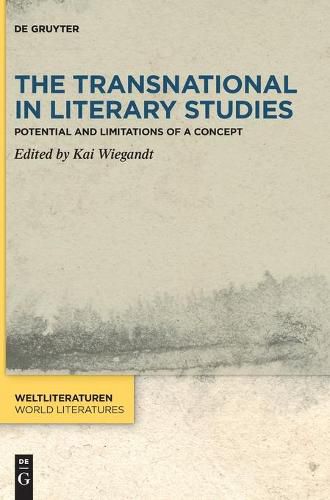Readings Newsletter
Become a Readings Member to make your shopping experience even easier.
Sign in or sign up for free!
You’re not far away from qualifying for FREE standard shipping within Australia
You’ve qualified for FREE standard shipping within Australia
The cart is loading…






This volume clarifies the meanings and applications of the concept of the transnational and identifies areas in which the concept can be particularly useful. The division of the volume into three parts reflects areas which seem particularly amenable to analysis through a transnational lens. The chapters in Part 1 present case studies in which the concept replaces or complements traditionally dominant concepts in literary studies. These chapters demonstrate, for example, why some dramatic texts and performances can better be described as transnational than as postcolonial, and how the transnational underlies and complements concepts such as world literature. Part 2 assesses the advantages and limitations of writing literary history with a transnational focus. These chapters illustrate how such a perspective loosens the epistemic stranglehold of national historiographies, but they also argue that the transnational and national agendas of literary historiography are frequently entangled. The chapters in Part 3 identify transnational genres such as the transnational historical novel, transnational migrant fiction and translinguistic theatre, and analyse the specific poetics and politics of these genres.
$9.00 standard shipping within Australia
FREE standard shipping within Australia for orders over $100.00
Express & International shipping calculated at checkout
This volume clarifies the meanings and applications of the concept of the transnational and identifies areas in which the concept can be particularly useful. The division of the volume into three parts reflects areas which seem particularly amenable to analysis through a transnational lens. The chapters in Part 1 present case studies in which the concept replaces or complements traditionally dominant concepts in literary studies. These chapters demonstrate, for example, why some dramatic texts and performances can better be described as transnational than as postcolonial, and how the transnational underlies and complements concepts such as world literature. Part 2 assesses the advantages and limitations of writing literary history with a transnational focus. These chapters illustrate how such a perspective loosens the epistemic stranglehold of national historiographies, but they also argue that the transnational and national agendas of literary historiography are frequently entangled. The chapters in Part 3 identify transnational genres such as the transnational historical novel, transnational migrant fiction and translinguistic theatre, and analyse the specific poetics and politics of these genres.